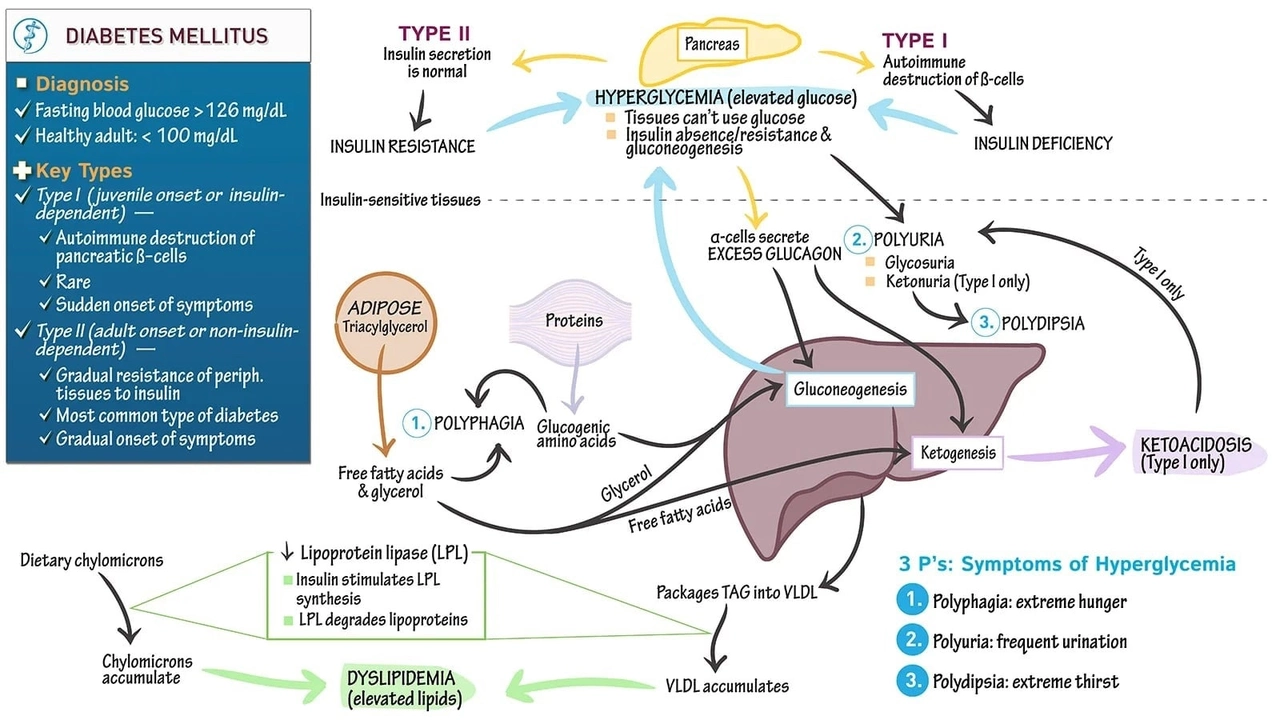Understanding Thyroid Deficiency and Insulin Resistance
Before diving into the connection between thyroid deficiency and insulin resistance, it's important to have a basic understanding of these two conditions. Thyroid deficiency, also known as hypothyroidism, occurs when the thyroid gland doesn't produce enough thyroid hormones. This can lead to symptoms like fatigue, weight gain, and depression. On the other hand, insulin resistance is a condition in which the body doesn't respond properly to the hormone insulin, leading to high blood sugar levels and an increased risk of type 2 diabetes.
The Role of Thyroid Hormones in Metabolism
Thyroid hormones play a crucial role in regulating our metabolism, which is the process by which our body converts the food we eat into energy. When thyroid hormone levels are low, our metabolism slows down, leading to common symptoms of hypothyroidism like weight gain and fatigue. A well-functioning thyroid is essential for maintaining a healthy metabolism and overall energy levels.
How Insulin Works in the Body
Insulin is a hormone produced by the pancreas that allows our body to use sugar (glucose) from the carbohydrates in the food we eat for energy or to store glucose for future use. Insulin helps to keep our blood sugar levels from getting too high (hyperglycemia) or too low (hypoglycemia). When we eat, our blood sugar levels rise, and the pancreas releases insulin to help cells absorb the glucose and use it for energy.
Thyroid Hormones and Insulin Sensitivity
Research has shown that thyroid hormones can have a significant impact on insulin sensitivity, which is the measure of how effectively our body responds to insulin. When our cells are more sensitive to insulin, they can more efficiently absorb glucose from the bloodstream, keeping blood sugar levels stable. Conversely, when cells become resistant to insulin, blood sugar levels can rise, leading to insulin resistance and an increased risk of type 2 diabetes.
How Thyroid Deficiency Can Contribute to Insulin Resistance
Thyroid deficiency can lead to a slowed metabolism, which in turn can contribute to insulin resistance. When the metabolism slows down due to low thyroid hormone levels, cells may not be as efficient at using glucose for energy, causing blood sugar levels to rise. This can put extra strain on the pancreas, causing it to produce more insulin in an attempt to lower blood sugar levels. Over time, this increased demand for insulin can cause the cells to become resistant to the hormone, leading to insulin resistance.
Common Symptoms of Thyroid Deficiency and Insulin Resistance
It's important to be aware of the common symptoms of both thyroid deficiency and insulin resistance, as they can often overlap and create confusion when trying to pinpoint the cause of one's health issues. Some common symptoms of thyroid deficiency include fatigue, weight gain, dry skin, and hair loss. Insulin resistance, on the other hand, often presents with symptoms like increased hunger, frequent urination, blurred vision, and slow-healing wounds.
The Importance of Early Detection and Treatment
Early detection and treatment of both thyroid deficiency and insulin resistance are essential for preventing further complications and maintaining overall health. If left untreated, thyroid deficiency can lead to more severe symptoms and even the development of a goiter (an enlarged thyroid gland). Insulin resistance, if not managed, can progress to type 2 diabetes and increase the risk of heart disease and other health complications.
Testing for Thyroid Deficiency and Insulin Resistance
If you suspect that you may have thyroid deficiency or insulin resistance, it's important to consult with a healthcare professional for proper testing and diagnosis. Thyroid deficiency can be diagnosed through blood tests that measure thyroid hormone levels, while insulin resistance is typically assessed through fasting blood sugar measurements, glucose tolerance tests, or HbA1c tests.
Lifestyle Changes and Treatment Options
For both thyroid deficiency and insulin resistance, there are ways to manage and improve your condition through lifestyle changes and medical treatment. Eating a balanced diet, exercising regularly, and maintaining a healthy weight can help improve insulin sensitivity and support thyroid function. Additionally, your healthcare provider may prescribe medications to help regulate thyroid hormone levels or improve insulin sensitivity, depending on the diagnosed condition.
Understanding the Connection for Better Health
By understanding the connection between thyroid deficiency and insulin resistance, you can take the necessary steps to manage your symptoms and improve your overall health. Remember to consult with a healthcare professional if you suspect that you may have either condition, and work together to create a treatment plan that best suits your individual needs.






Reviews